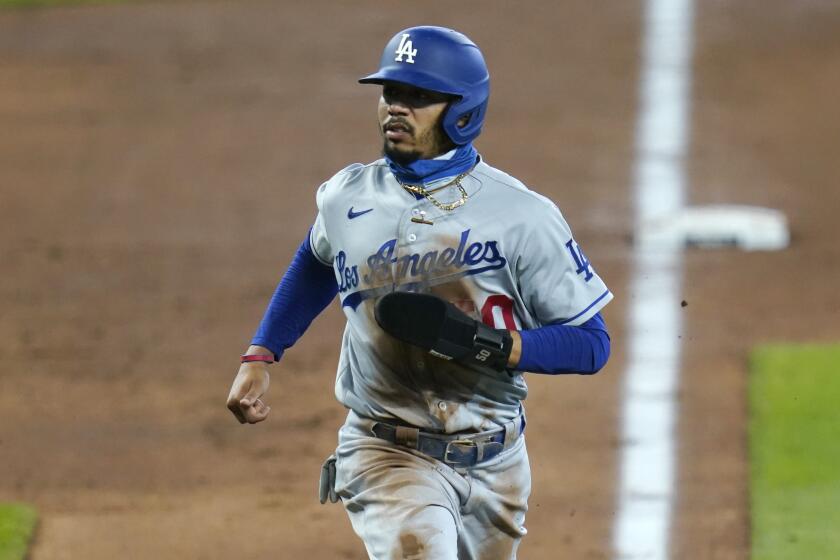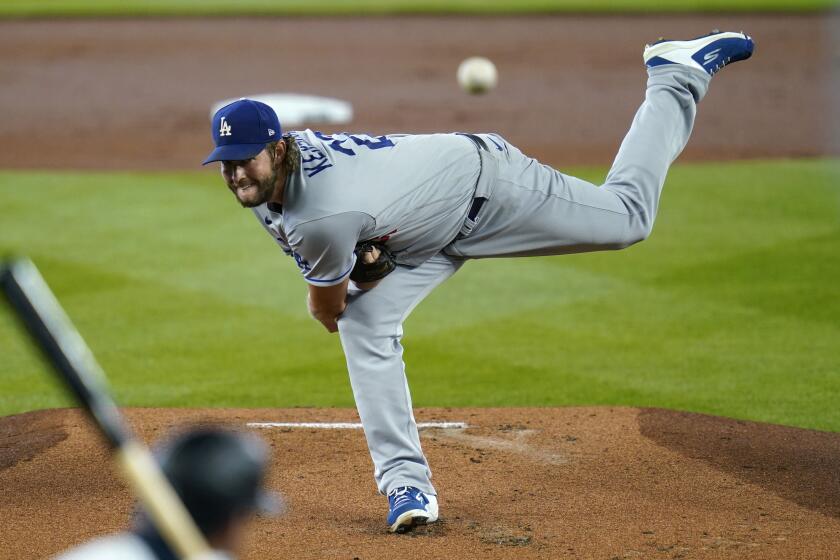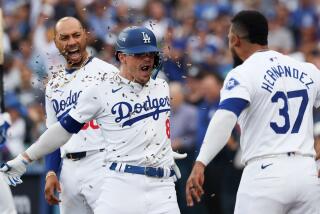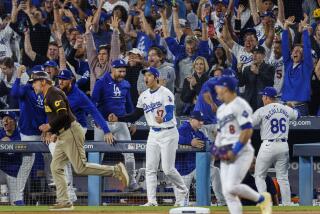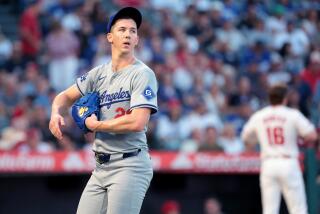On Baseball: Fattening MLB playoffs with more teams thinned Dodgers’ World Series chances
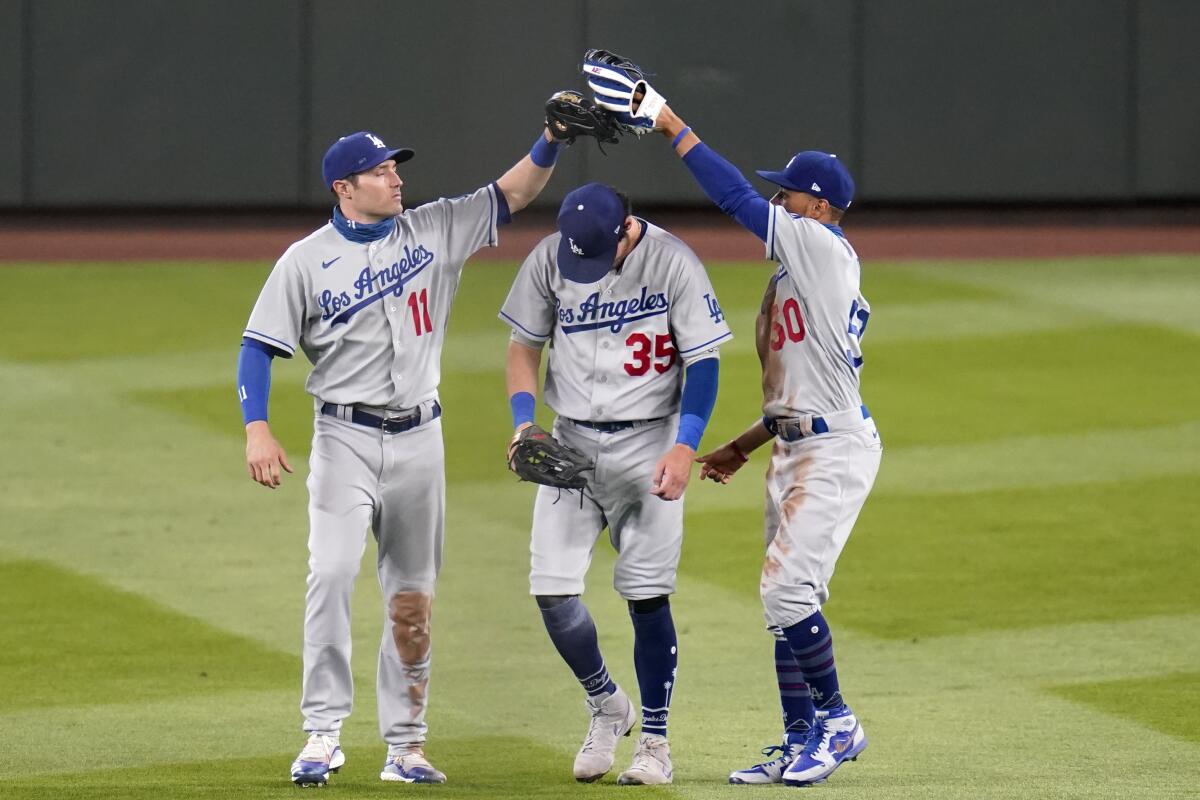
- Share via
Way back in early July, when just reaching opening day was the objective, Major League Baseball clubs reported to training camp convincing themselves an asterisk wouldn’t accompany a championship. The regular season would be a 60-game flash, not a 162-game grind, but the extraordinary circumstances rendered winning the World Series a unique challenge. All 60 games would matter more. It was special in a different way. Regardless, things would return to normal in October with the usual postseason format.
Then, hours before the season’s first games, MLB and the players’ union announced they agreed to expand the playoffs. The participants would double from eight to 16 with eight teams from each league. The No. 1 seed would play the No. 8 seed, the No. 2 seed would play the No. 7, and so on in the first round. All the first-round matchups would be a best-of-three series. The change reemphasized the point of all this: to make money.
“We want to get to the playoffs,” Philadelphia Phillies manager Joe Girardi said on MLB Network Radio on July 28. “That’s the important thing.”
The format modification fundamentally reduced the 2020 regular season’s importance. And that was before coronavirus outbreaks surfaced among the Miami Marlins and St. Louis Cardinals, threatening the chances those teams play 60 games.
The change gave teams who got off to slow starts a safety net but eradicated any semblance of a reward for the best teams during the regular season. And it made MLB’s postseason — already a crapshoot before the changes — more of a crapshoot.
Here’s the starting lineup for the Los Angeles Dodgers against the Colorado Rockies on Friday.
“From a broader perspective, I get it,” said Andrew Friedman, Dodgers president of baseball operations. “In terms of fan interest around the game and increasing the number of teams that make the playoffs. From our perspective, we feel like we are one of the better teams in the league and I don’t think that this necessarily helps us.”
The Dodgers have won seven consecutive National League West titles. In five of those seven years, they were rewarded with home-field advantage in a five-game National League Division Series. They went 4-3 overall.
This year, they are the consensus best team in the National League. They entered Saturday with the best record in the majors at 20-8. They owned a plus-70 run differential — 36 runs better than the next-best total. They had a 93% chance of winning the division and a greater than 99% chance of making the playoffs, according to the website FiveThirtyEight.
And if their place in the standings holds, they would play a three-game series at Dodger Stadium without fans. When MLB announced the playoff format, the biggest change in FiveThirtyEight’s projections was the Dodgers’ chances of winning the World Series falling by 2.8 percentage points to 18.9% — still the highest in the majors.
Clayton Kershaw, continuing to show improved speed with his fastball over last season, achieves a milestone in the Dodgers’ 6-1 win over Mariners.
The chances would seemingly drop further if they play postseason games at a neutral site should MLB follow through on its plans to stage the postseason in a bubble. There’s a chance a bubble would include Dodger Stadium and the other two ballparks in Southern California. If not, all rewards for their regular-season performance would be neutered.
The lack of an advantage for the best teams over a regular season became a topic in the NBA this week when the Lakers and Milwaukee Bucks, the two top seeds in the league’s playoffs, lost their first games to their eighth-seeded opponents at a neutral site in Orlando. In baseball, playoff results aren’t as predictable. Teams get hot and storm to a championship. Just ask the Dodgers about the Washington Nationals last season.
“[I] Feel like there’s a major difference between the 1 seed and 8 seed in the NFL and NBA,” Dodgers pitcher Ross Stripling said. “But not that big of a difference in baseball. Anything can happen in baseball, especially in just three games.”
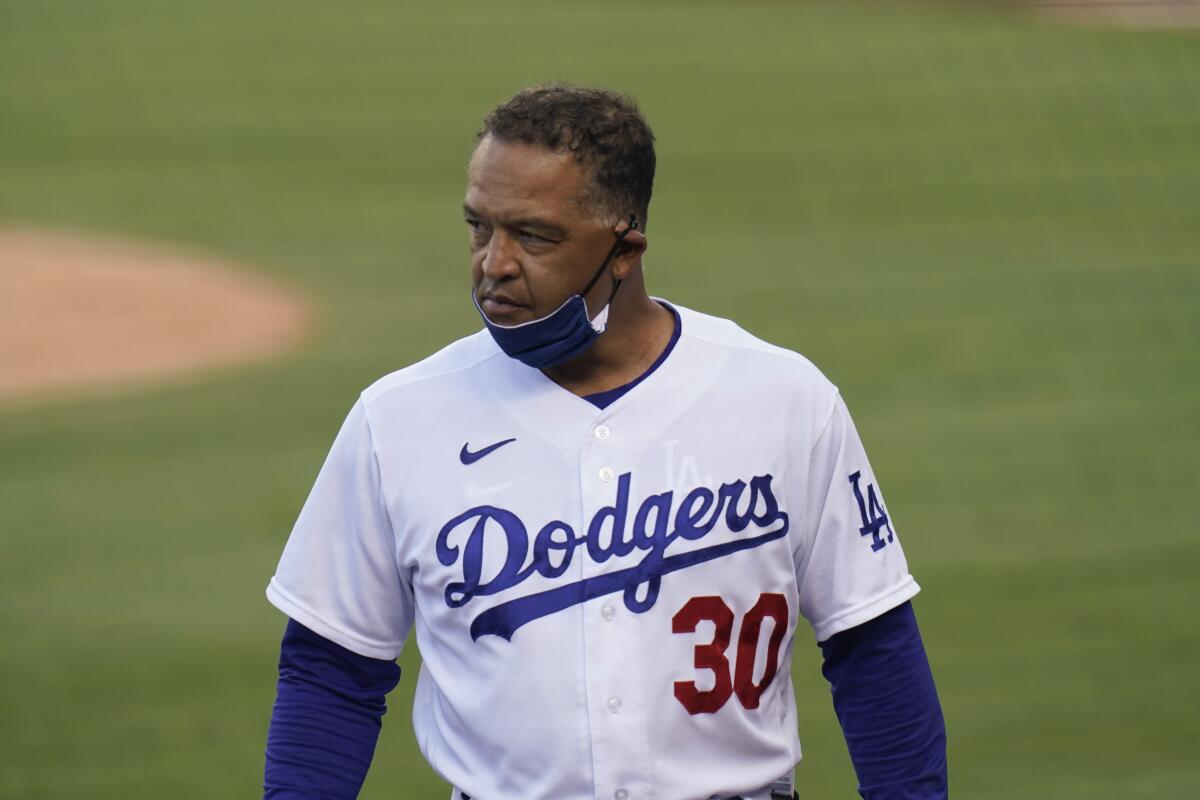
Dodgers manager Dave Roberts has an idea to incentivize teams to win during the regular season: Have the top seeds in each league pick their opponent. That added layer would allow teams to pick based on matchups and potential. It would add some theater — MLB could even turn the selections into an hour-long special on its network to magnify interest — and some bulletin board material for the chosen teams.
“If you look at baseball, especially in a short series,” Roberts said, “it’s anybody’s game.”
Roberts’ plan won’t happen in 2020. If MLB can prevent the coronavirus from derailing its season, the best teams won’t see a real reward for their performances in an unprecedented regular season. It’s been cheapened for a crapshoot. But the TV money will be nice.
More to Read
Are you a true-blue fan?
Get our Dodgers Dugout newsletter for insights, news and much more.
You may occasionally receive promotional content from the Los Angeles Times.

